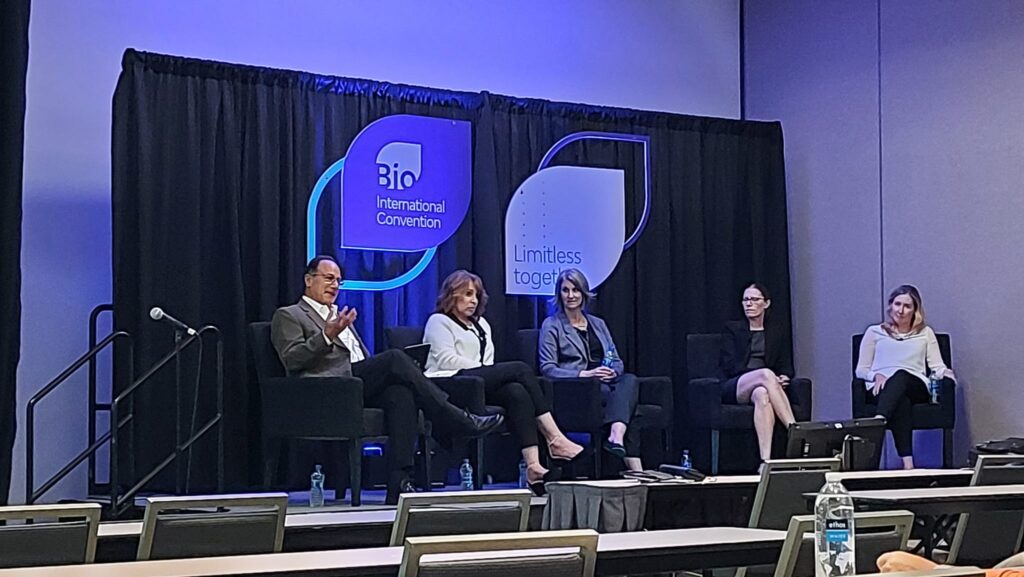The Biopharma Sustainability Roundtable published a guidance document which expands on strategic thinking and planning of biotechnology and pharma investor Environmental, Social, and Governance (ESG) communications.
As part of the opening day of the 2022 BIO International Convention, a panel brought together experts to discuss and share best practices in terms of communicating ESG performance in the biotechnology context.
Moderated by Sandor Schoichet, Co-founder and Partner at Meridian Management Consultants, the panel featured Victoria Emerick, Executive Director & Global Head, Corporate ESG-Sustainability Strategy & Operations at Bristol Myers Squibb; Angela Bitting, Senior VP of Corporate Affairs at Twist Bioscience; and Christine Miller, Global Head of ESG BeiGene.
The main driving forces behind this discussion, according to Schoichet, is the so-called “generational wealth transfer” – which means more and younger people in the investor community are making efforts to avoid “greenwashing” by pushing information that is both meaningful and credible.
According to Emerick, ESG aligns with sustainability by building resilience to change and reducing the risk of change. “Constant evolution” – adopting new strategies and work to embed ESG in corporate culture – is key, she added.
With most of their employees being millennials, Twist Bioscience pushes for transparency for the public, favoring qualitative over quantitative data.
Where to start in ESG reports? Angela Bitting says to start with the materiality process of high-priority issues, mainly interviewing internal and external stakeholders and getting their perspectives, along with landscape analysis of issues relevant to the media.
A challenge that companies are facing, Christine Miller added, is the need for more rigorous data collection. Having set goals, companies must have reliable data that they can demonstrate externally in order to show progress.
A key ESG issue for biotech and pharma in particular is access to medicine – which must be a top priority, and not just for marketing purposes. New manufacturing technology can help.
On top of access, pricing, and availability, Emerick adds that companies can only do so much, highlighting that connection to policymakers is very important.




